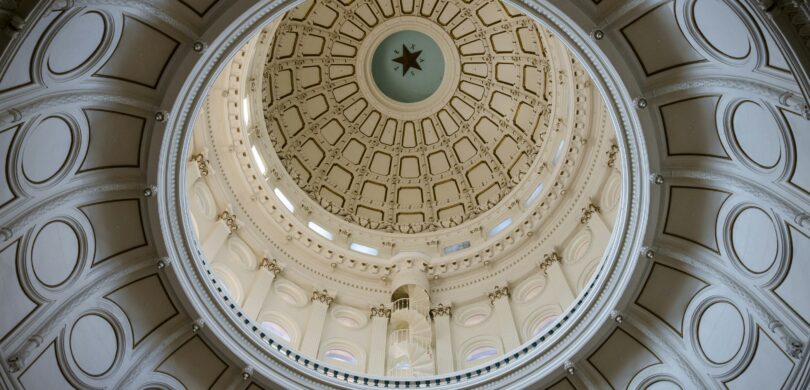Since the beginning of 2024, many new laws in Texas have come into effect. The Texas legislature meets on a two year cycle, so the next time the legislature meets will be in 2025. Many new bills became effective on January 1st. Others will be implemented over the next year and a half before the legislature reconvenes.
These new policies span a wide array of topics. This includes property taxation, broadband development, education funding, and healthcare. In this article, we categorize and summarize these bills to shed light on the changes taking place in the Lone Star State.
Property Taxation and Fiscal Policy
HB 5 aims to attract economic investment from property and business owners to the state of Texas. This economic incentive plan would allow school districts to grant full property tax breaks to businesses that move to the state. It would also promote job creation throughout the state. HB 5 was highly contested in the state legislature. Its emphasis on tax breaks to businesses that help fund the state of Texas proved controversial.
SB 2, 88th 2nd C.S. is a property tax relief initiative through the public school finance system. This bill has multiple sections that take effect at various dates. Measures will become effective contingent on the approval of HJR 2 by voters.
SB 1145 provides financial support for child care providers throughout the state. It provides a tax cut of more than 20% if the children in their care are paid for by subsidies. This bill solves the increasing costs of both child care and property space to provide child-care. SB 1145 allows both families to save on costs, and child-care providers to stay open.
SB 1612 repeals juvenile court fees. This bill decreases the burden of the criminal justice system upon juvenile offenders. It allows juvenile offenders to enter their adult years without the debt of criminal justice fees.
SB 1648 amends the Parks and Wildlife Code. It authorizes the Texas Parks and Wildlife Departments to administer funds to maintain parks. The Departments may also acquire additional park-protected territory and improve state parks.
SB 2289 provides tax exemptions for medical manufacturers. Medical and biomedical manufactorers receive an exemption from ad valorem taxation for their equipment and inventory.
Infrastructure and Public Services
HB 9 addresses the development and funding of broadband and telecommunications services. The bill arose from recent infrastructure failures in Texas over the past 2 years. Nearly 7 million people in Texas do not have access to a reliable internet connection. Implementation will be determined by a public vote in the upcoming election.
SB 28 was unanimously agreed upon by senators in Texas. It allows the state to set aside a fund for acquiring new water sources. This bill aims to upgrade the state’s aging water infrastructure. It further aids in funding future water-related projects.
The American Association of Professional Landmen (AAPL) sponsored SB 604. AAPL is a voluntary professional organization for North American Landmen. Landmen are involved in the public-facing side of oil, gas, mineral, and energy sources. This bill provides three new areas of protection for these workers, including:
- Protection from legal penalties for unauthorized law protection practice
- Granting Independent Contractor Status to landmen
- Exemption from the Franchise/Margin Tax
Education Funding and Administration
SB 17 restricts DEI initiatives at public higher education institutions in Texas. The law prohibits DEI office establishment and regulates hiring practices. Institutions must update their policies and ensure compliance with merit-based hiring. Further, they must submit a compliance report to maintain access to state-appropriated funds. This bill effectively punishes institutions that prioritize DEI principles.
HB 1595 allocates $3.5 million from the State budget to support research projects at research institutions. The bill does not specify the type of research, allowing academic freedom and the open pursuit of research endeavors.
SB 10 provides cost-of-living adjustments for retired teachers. Retired teachers will receive a one-time stipend, the amount of which is determined by their age and retirement status.
Understand New Laws in Texas With Plural
New laws in Texas reflect a comprehensive approach to many public issues. This includes property taxation, infrastructure development, and public services. These policies reflect the state’s focus on economic growth and property in Texas. As these laws take effect, Texans can anticipate significant changes that will shape the future of their communities.
Plural is the tool of choice for policy teams tracking new laws in Texas. With Plural, you’ll:
- Access superior public policy data
- Be the first to know about new bills and changes in bill status
- Streamline your day with seamless organization features
- Harness the power of AI to gain insights into individual bills and the entire legislative landscape
- Keep everyone on the same page with internal collaboration and external reporting all in one place





